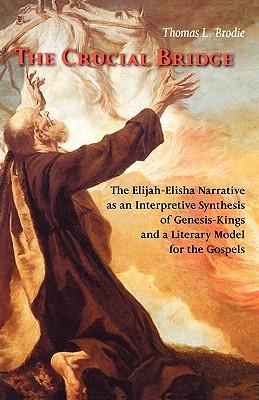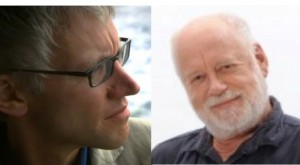 How was Brodie’s method of arguing that the Gospel narrative of Jesus is indebted to the OT narrative of Elijah and Elisha received by his scholarly peers before he published his conviction that there never was an historical Jesus? Was it laughed out of the academy as an unfortunate attack of “parallelomania” (as McGrath would seem to think it should be now that he classifies Brodie as an intellectual leper for denying the historical existence of Jesus)?
How was Brodie’s method of arguing that the Gospel narrative of Jesus is indebted to the OT narrative of Elijah and Elisha received by his scholarly peers before he published his conviction that there never was an historical Jesus? Was it laughed out of the academy as an unfortunate attack of “parallelomania” (as McGrath would seem to think it should be now that he classifies Brodie as an intellectual leper for denying the historical existence of Jesus)?
Thomas Brodie argues that the Old Testament double narrative of Elijah and Elisha lies behind the narratives of Jesus in the synoptic gospels. My previous post included references to this in extracts from reviews of The Birthing the New Testament. Brodie had earlier published a smaller volume outlining this particular case, The Crucial Bridge, and this post shares some details of scholarly reviews of that volume.
Anyone who has used the online Historical Commentary on the Gospel of Mark knows that its author, Michael Turton, has made numerous references to The Crucial Bridge. Jacob Aliet in his review of this commentary notes:
Backed by the works of scholar like Tomas L. Brodie, Turton advances the argument that the author of Mark modeled the events surrounding Jesus on the Elija-Elisha cycle and other Old Testament characters and prophecies. Though he performs a literary analysis on the gospel, Turton’s main objective is using the analysis to help in arriving at a judgement on the historicity of the events and characters in the Markan narrative.
Turton recognized the implications of Brodie’s analysis and did not shy away expressing it.
What needs to be understood is that The Crucial Bridge is only secondarily, even incidentally, an argument that the Gospels of Luke and Mark in particular were influenced by the Elijah-Elisha narrative. It is confined to the concluding 20-page chapter. The main argument (80 pages) examines the literary structure of the Elijah-Elisha section and its relationships with the Primary History (Genesis to 2 Kings).
Moreover, Brodie’s final chapter arguing for a link between the Gospels and the Elijah-Elisha section is actually introduced as an attempt
to corroborate [Raymond] Brown’s proposal …that the Gospels were partly modeled on the prophetic biographies, particularly the account of Elisha and his miracles … in particular to make it more precise: the foundational model for the development of the Gospels was not just the account of Elisha’s miracles. It was the entire Elijah-Elisha narrative. (p. 80)
This proposal by Raymond Brown was published in Perspectives 12 (1971) 98-99 as “Jesus and Elisha”. Brodie notes that other scholars have since agreed with this basic idea:
- Charles Talbert, What Is a Gospel?
- Martin Hengel, Acts and the History of Earliest Christianity (1980), 30-32
- David Barr and Judith Wentling, “The Conventions of Classical Biography and the Genre of Luke-Acts: A Preliminary Study,” paper presented at SBL/CBA regional meeting, 1980
- Yarbro Collins, The Beginning of the Gospel, 27-36
The point I am making here is that Brodie’s thesis is not unique. It mixes with a respectable scholarly agenda. To dismiss his argument as inept methodologically after he has “come out” to confess his mythicist leanings suggests a base motive at large. Continue reading “Reviews of Brodie’s Works: Elijah-Elisha Influence on Gospel Narratives”
Like this:
Like Loading...


